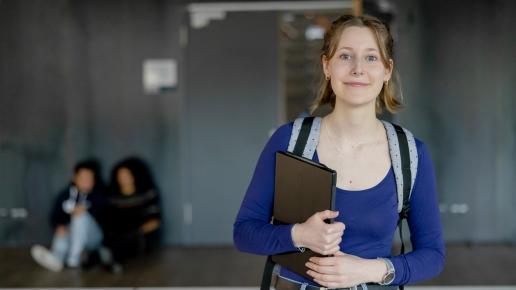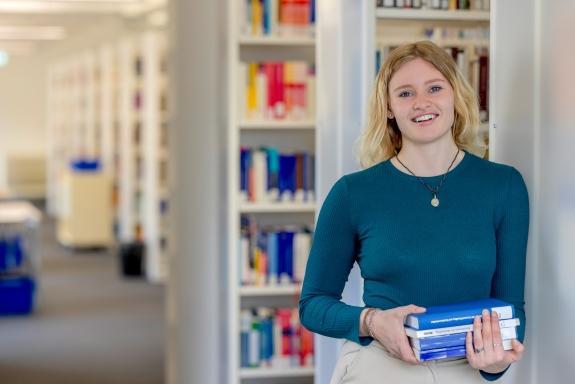Shape your future at the University of Siegen
If you are interested in exploring the relationship between cultural education and educational theory, our Master’s program offers the perfect opportunity for you.
You will explore topics such as education in popular culture, popular music, gamification, and art in public spaces, while reflecting on mediation possibilities within both educational and non-educational institutions.
You will focus on the significance of cultural practices in the educational journeys of children, young people, and adults. This encompasses not only artistic reception and creation but also various forms of everyday design and cultural expression.
The degree program is interdisciplinary, offering valuable insights into diverse fields such as art, music, architecture, literature, and media studies.
Career prospects
Graduates of the master's degree program are qualified to work
- in science
- at non-university research institutions
- in the field of cultural education (such as youth art schools, cultural centers and associations, play buses, or hands-on circuses)
- in a wide range of educational institutions (schools, social work, adult/continuing education)
- in cultural institutions (such as theaters, museums, libraries)
- in foundations, political parties, associations, NGOs, or international organizations
- in the newspaper and publishing industry
- in the education departments of companies
- as a self-employed person in the educational or cultural sector
Student Voices: Insights into the Educational Sciences program
Student Voices: Insights into the Educational Sciences program
"I can recommend this program because it provides close interaction with both classmates and professors, which creates a friendly and supportive atmosphere that makes studying very enjoyable. I also appreciate the wide range of electives, as they give you the freedom to organize your studies around your own interests and to put together seminars and lectures in a way that suits your goals."
Personalized study atmosphere
"The master’s program offers a research-focused curriculum with options to specialize in areas like adult education, school pedagogy, or philosophy of education, so you can really dive into what interests you most. Because it draws on different subject areas, it gives a broad view of education, and the close connections with classmates and professors create a supportive and welcoming atmosphere for studying."
1) Applicants must hold Bachelor of Arts in Educational Sciences, Social Work, or Education: Development and Inclusion, or a comparable first professionally qualifying university degree.
2) A completed bachelor's degree in education, in which at least one subject from an educational, social or cultural science field was studied and the bachelor's thesis on a topic related to the educational sciences.
3) The bachelor's degree qualifying for admission must have been passed with a grade of at least "good" (2.5).
4) A completed master's degree in the teaching profession, in which at least one subject from an educational, social, or cultural science field was studied.
5) The examination board of the degree program shall decide on admission to the master's degree program.
The current examination regulations always apply.
Departmental Examination Regulations/Degree Plans/Module Handbooks
Departmental Examination Regulations (known in German as Fachprüfungsordnungen, or FPOs) define the basic structures of a degree program (including admission requirements and curriculum). Students are automatically subject to the current version of an FPO when they enroll for their first semester. Even if a new FPO is issued during your studies, you will still be subject to the rules of the original version according to which you enrolled (presuming the FPO has not otherwise been revoked).
Each degree plan represents the recommended ideal course of study for a given subject and is a constituent part of any FPO.
Supplementary regulations and detailed information for each module (such as requirements for taking a written examination and the content of the modules/events) can be found in the module handbooks.
The internship regulations define the conditions under which the compulsory or optional internships must be completed.
Before the start of the lecture period, we recommend that you review the degree plan for your degree program so that you know which modules are planned for the start of your studies.
Why choose educational sciences at the University of Siegen?
- Unique profile within educational sciences degree programs in Germany
- Different interdisciplinary references build a broader perspective
- Electives and program design choices empower students to pursue interest-driven learning
- Excellent student-instructor ratio
- Wide range of career opportunitie


